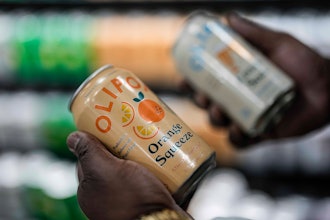
 Daniel Erickson
Daniel EricksonThe adverse effects and increasing occurrence of product recalls have resulted in food and beverage manufacturers’ focus shifting from merely responding to food contamination issues to preventing them from occurring in the first place. Companies are establishing prevention protocols to drive changes in their operations to enact stringent controls, while at the same time employing food safety management initiatives to alleviate hazards harmful to consumers in the marketplace. An industry-specific ERP solution ensures that prevention is central to all operations by minimizing and preventing safety concerns and enhancing operations.
Driving the demand for recall prevention is the Food Safety Modernization Act (FSMA) monitored by the Food and Drug Administration (FDA) and enacted to protect the well-being of our nation’s food system. With changes in the global food system and increased consumer awareness, it is clear that preventable foodborne illness is a significant health concern, as well as an economic issue. Recall prevention initiatives, along with FSMA regulations for maintaining a Food Safety Plan (FSP) and Food Defense Plan, have food and beverage manufacturers pursuing ERP solutions to improve product quality, reduce safety-related incidents and document audit results — all while increasing efficiencies in the organization’s operations.
Preventative controls throughout the entire supply chain, as specified by FSMA, mitigate risk and document specific actions that must occur throughout the manufacturing process to prevent contamination. These controls are facilitated through ERP software functionality in conjunction with a FSP, risk assessment and periodic mock recalls. The key to success starts with effective planning and then follows with the execution of the FSP to alleviate risk. Three primary areas of recall prevention including; good supplier relationships, quality control checks in the manufacturing process and the labeling and shipment of the final product.
An established supplier relationship is one of the most important aspects in preventing a product recall, as it assures that a company starts with a foundation of quality raw materials. Manufacturers set their own criteria, rules and required certifications (Certificate of Analysis (CofA), Safe Quality Food (SQF), British Retail Consortium (BRC) or other similar certification, Ethical Sourcing Certification, etc.) for suppliers as a condition of doing business — often conducting an on-site vendor audit to ensure specifications are being met. Failure to meet requirements helps to identify problems in the supply chain and initiate a search for alternate vendors. In addition, conditions for “premium” ingredients are established to solidify a high value for products that meet specific criteria. An ERP solution records and maintains supplier details, documents and test range results, as well as automating workflow to ensure quality materials are properly handled, in appropriate amounts, at a reasonable cost.
Quality assurance throughout the manufacturing process requires diligent preventative measures. A company’s preventative controls quality individual (PCQI) is tasked with overseeing the preparation, implementation and documentation of an approved FSP — focusing on standard operating procedures and industry best practices to ensure compliance requirements are fulfilled. The ERP solution automates and documents the preventative measures performed and assists manufacturers with keeping up-to-date on regulatory changes. The ERP solution also helps maintain the mandated five years worth of records, providing immediate records availability upon FDA compliance check inspections.
Applicable critical control points (CCP's) are applied throughout the manufacturing process, to prevent or eliminate hazards. These CCP’s are set up within the ERP software to leverage quality control and manage test specifications to ensure that quality control needs are met. With control points documented and managed within an ERP solution, food safety hazards can be prevented or reduced to acceptable levels through the elimination of manual and paper processes. Automatic alerts within the system are utilized to identify exposure before further contamination can occur.
Lack of process, sanitary and allergen controls are the leading causes for contamination resulting in a recall event. Tracking allergens in the supply chain and throughout the manufacturing process for food and beverage manufacturers is a time-consuming, mandated process that includes lot tracking, stringent sanitation practices and raw material segregation. An ERP system manages and records the material handling, storage and production steps from farm-to-fork, including sanitary practices and process controls to help avoid allergen contamination or cross-contamination.
One of the biggest factors to recall prevention is accurate product labeling, which is handled quickly and efficiently by food and beverage ERP software. Due to the intricacies involved with label creation, including ingredient and allergen statements, nutrient analysis, expiration dates, lot and batch numbers and regulatory specifications, it’s imperative to employ an automated system that generates labels to meet the expectations and compliance needs of consumers and regulators. Labeling accuracy plays a key role in the company’s recall planning, as the labeling history documented in the ERP software allows items to be identified and located quickly. Forward and backward lot traceability available within a real-time ERP for process manufacturing is necessary in the event of a production error or contamination. This detailed level of tracking and tracing provides a documented audit trail imperative to current Good Manufacturing Practice (cGMP). Removing ingredients from inventory or the production manufacturing floor prevents contaminated items from reaching consumers, which is the ultimate goal.
Recalls can happen at any point from farm-to-fork and occur for a variety of reasons including product contamination, food fraud and mislabeling or improper product specifications. No matter the timing or the source, part of an approved FSP should include regularly occurring mock recalls so that manufacturers can practice the recall plan and processes. These simulated exercises seek to identify all contaminated products and notify clients, vendors and government agencies quickly — identifying deficiencies and adjusting manufacturing processes, and in turn modifying the prepared recall plan as needed. An ERP system’s end-to-end recall management functionality with real-time forward and backward lot traceability, detailed record keeping, allergen/attribute tracking and efficient processes to maintain compliance standards supports the mock recall process in identifying gaps and preventing future recalls.
With the high stakes of food and beverage recalls, companies can no longer afford to only react to safety issues but need effective processes in place to prevent contamination from occurring in the first place. Enacting preventative controls throughout the process, including approved supplier relationships, quality control and assurance procedures, process, sanitary and allergen management, accurate labeling and mock recall help to mitigate harm to customers and are essential for recall prevention. An industry-specific ERP solution ensures that prevention, control and traceability are central to all operations by improving quality control measures, reducing contamination risks and documenting the manufacturing process - all while increasing efficiencies in the organization.
Daniel Erickson is a Product Strategy Manager at ProcessPro.






















